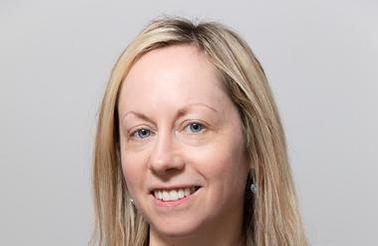Alison Wyman took up her first chief executive role leading the Actors’ Benevolent Fund (ABF) in July last year.
Her appointment came soon after the Charity Commission had ordered the membership organisation to rerun a trustee election.
National media had run stories in previous months about former board members, including ex-president and actress Penelope Keith, being “ousted” from the charity and the regulator had opened a compliance case.
Now, eight months on, the charity has successfully elected a board of trustees, despite contacting the police over almost half of the votes cast.
And this week, the actors’ charity chose broadcaster and author Loyd Grossman as its chair, which it hopes will finally enable it to move on, away from the media’s spotlight.
The charity remains subject to a regulatory compliance case, but Wyman says “it feels like we’re at a turning point”.
“I think with the new board that’s just joined, and with some new staff, as well, and with the appetite among our membership, as well for change in greater impact, it feels like we’re at the start of something really exciting. And I’m just really looking forward to getting stuck into that.”
Route to charity sector leadership
Wyman says she “always wanted to do something that would make a difference” and decided at university that she wanted to work in the charity sector.
Her first job in the sector was working as a frontline adviser in a south London branch of Citizens Advice, a role she says was “eye opening” as people would bring in piles of envelopes full of debts owed. “It gave me a real insight into people’s lives where they’re struggling. I came across people that I might not otherwise have come across in my day-to-day life.”
She moved to the Royal British Legion in 2008 to set up its money advice team for the armed services community before being promoted to a senior managerial role which involved grant-making.
“I really enjoyed seeing the impact it was having among people. They were coming into the service with lots of debts, not much income, and by the end of it, we’d helped them and their lives were in a much better place.
“I suppose I just started naturally moving into roles where I was able to start shaping services and developing them. And I quite enjoyed that and leading teams and realising I did miss the face-to-face frontline element. But actually, what I realised was, as a leader, I could shape and influence more broadly.”
Wyman then held several senior roles at fellow armed services charity RAF Benevolent Fund, where she worked for a decade and led it through a strategic review.
Despite spending much of her career working for armed forces charities, Wyman has no military service links herself. “I didn’t have a familiarity with the military before I joined. But in a way that helped, I think, because people couldn’t place me in terms of what rank I might have been and so people just took me for who I was.”
During that time, she was a trustee at Queen Mary’s Roehampton Trust and then Health and Hope charity before her current trusteeship at the Association of Charitable Organisations.
Wyman also completed a master’s degree in voluntary sector management at Bayes Business School.
“That gave me a real appetite to do more, and to use that knowledge and use my skills to shape and develop organisations to have the greatest impact they possibly could.
“And then this opportunity came up at the Actors’ Benevolent Fund. I wanted to develop, but I wasn’t necessarily looking for a CEO role. But what I loved was the ambition that the trustees and the membership had.
“They really wanted to honour the past and the charity’s rich history, while also making sure that the charity continued to be relevant and fit for the future. And that big, bold vision and ambition really appealed to me. And it just felt that it drew together a lot of the experiences and skills and the knowledge that I've gained in the other charities.”
And Wyman says there are more links than you might imagine between the armed forces community and actors as groups of charity beneficiaries.
“You would think you couldn’t get two more opposite groups, but actually, having to move around a lot for work, being away from family, the strain that takes on relationships, the impact on mental wellbeing – there’s a lot of similarities there between the two communities.”
Joining at a challenging time
Wyman says she was aware that the Actors’ Benevolent Fund had been “going through a very challenging time” so “did not walk into [her CEO role] blindly”.
“Even despite there being a dispute, everybody on whatever side of the dispute they sat, was passionate about this charity. And I could see the potential and I felt that I could help make a difference.
“I could see that the trustees had made a huge amount of progress in dealing with a lot of the historical governance issues. So, I was confident that I was walking into a charity where the board was actually in a good place. But I was aware that it was going to be a challenging few months.”
Part of the challenge was the increased media attention on the charity. In her first CEO role, Wyman says this was a new experience and her focus was on preventing the news stories from impacting the charity’s work.
“Myself and the team were involved in responding to requests. But I didn't directly give any interviews, mainly because I felt being new in, actually, I needed to spend some time just understanding the situation familiarising myself with a charity, focusing on the core running of it. So I think it would have felt a bit strange commenting on something when I was so new to it.”
Wyman says she is not sure whether the trustee dispute would have been reported so widely in the press if it were not for those involved being high-profile actors.
Despite the disruption, Wyman says she has had a positive relationship with the charity’s trustees, who were welcoming and supportive of her.
With a new board finally in place, Wyman says “everybody is focused and agreed on how can we use their resources to make the greatest possible difference”.
“Everybody wants to draw a line under the past, move forward into the future. And I feel very privileged that I get to work alongside actually such a great board.”
Adapting a traditional charity
The charity, founded in 1882, has seen increased demand from its beneficiaries in recent years, providing grants and other support to around a third more actors and stage managers in 2023 than the year before.
“Cost-of-living, I think, has been a key part of that. I think also people are starting to become more aware of us. Maybe that’s one of the few benefits of the press recently is actually people are more aware of what the Actors’ Benevolent Fund does.”
To adapt to this increased need for support, the charity has undergone a staffing review. It has a small team which it expects to grow to 10 staff members in the coming months. This will include a new head of grants and services and a marketing engagement manager.
“We’ve been a very traditional charity that has done amazing work and made a huge difference to people. At the same time, people’s needs are changing. We’ve been seeing a changing demographic with people coming to us for help. We’ve got a younger and more diverse set of people coming to us. And that’s probably most likely due to the cost-of-living crisis. So we want to make sure that actually, we’re reaching people effectively, so that we can help as many people as possible.”
Plan for income growth
ABF recorded an income of £1.63m in 2022, according to its most recently filed accounts, with most of this generated by its £33m-worth of long-term investments.
Wyman would like to increase ABF’s overall income to meet rising demand for its services and is looking at other sources of funding.
She says the charity’s board has an away day booked in May to identify its strategic priorities.
“We do want to help more people. And part of that involves looking at having the income to enable us to do that. Around 80% of our income is investment income. And there is definitely potential to look at diversifying and growing our income. We don’t do very much active fundraising at all. So that is likely to form an emerging part of our strategy.
“And we know that there are people who really value the creative industries, and they want to support the people that work in them. So, I think there's work for us to do in finding those people and enabling them to do that.”
ABF has more than 600 members, who each pay a subscription fee of £20 a year. Wyman would like to try and attract more and broaden the range of the support it offers them.
“We asked our members, what was it that motivated them to become a member. And the main motivation was the opportunity to give something back. So, it was very altruistic actually. And that’s something that I’m certainly thinking about going forward about. If we want to attract more members, just looking at what is it that actually motivates somebody to join a membership charity.”
Charity sector through and through
Wyman has dedicated her career so far to working for charities, but would she ever move to another sector?
“It’s not something I think I would actively be looking for. I think I’m charity sector through and through. So, I think that probably the remainder of my career will be charity sector.
“I love the passion that people have and the difference that people want to make. And I think there’s nothing that quite makes up for that.”
Related articles











